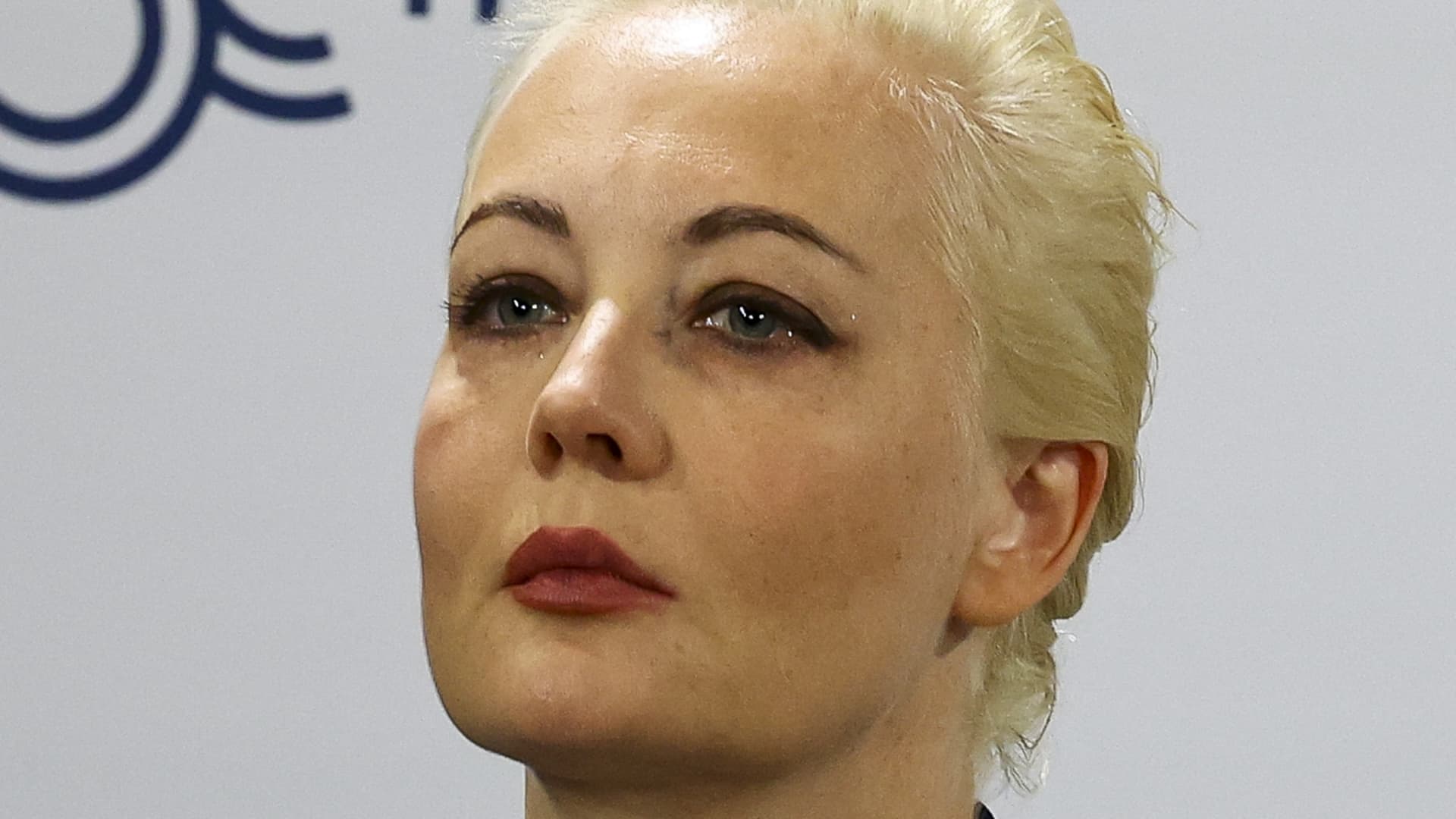Yulia Navalnaya, wife of late Russian opposition leader Alexei Navalny, attends the Munich Security Conference (MSC), on the day it was announced that Alexei Navalny died by the prison service of the Yamalo-Nenets region where he had been serving his sentence, in Munich, southern Germany on February 16, 2024.
Kai Pfaffenbach | Afp | Getty Images
Yulia Navalnaya “did not have a choice.”
That’s what one Ukrainian lawmaker said of the wife of the late Alexei Navalny, who vowed to continue her husband’s political work fighting for democracy in Russia after he died in a Siberian prison last month.
As the first reports of Navalny’s death started to emerge, Navalnaya was in Munich at a security conference. At first, she was not sure whether to believe the reports.
Then, she took to the main stage: “I thought: Should I stand here before you or should I go back to my children? And then I thought: What would have Alexei done in my place? And I’m sure that he would have been standing here on this stage.”
Yulia Navalnaya (L) is applauded by European Parliament President Roberta Metsola after addressing the European Parliament on Feb. 28, 2024.
Frederick Florin | Afp | Getty Images
Since that moment, Yulia Navalnaya has turned her husband’s mission into hers.
“I will continue the work of Alexei Navalny. Continue to fight for our country. And I invite you to stand next to me,” she said in a video message, shared on X, just a few days later.
A sense of injustice
Lisa Yasko, 33 years old and a member of the Ukrainian Parliament, said she can relate. Her partner is in jail in Georgia for opposing the ruling authorities.
Ukrainian MP Lisa Yasko delivers a speech in April, 2022.
Cristina Quicler | Afp | Getty Images
Hailing from Kyiv, Yasko became a political activist in 2014 after the so-called Maidan Uprising, which saw Ukrainians take to the streets to demonstrate in favor of closer ties with the European Union, not Russia.
“I believed I should be in politics to make a change, I felt a sense of injustice,” she told CNBC via Zoom last month.
At the time, Ukraine’s pro-Russian President Viktor Yanukovych had ignored his country’s parliament and refused to sign a cooperation agreement with the European Union.
In 2019, Yasko met the now-president Volodymyr Zelenskyy and decided to become a lawmaker for his party.
A view of barricades in downtown Kiev following demonstrations in 2014.
Monique Jaques | Corbis News | Getty Images
At the start of her political career, Yasko recalls being seen as “the young one,” but said women in politics started to earn “more respect” following Russia’s invasion.
Yasko was among the Ukrainian delegation that traveled to the Munich Security Conference in February to ask Western allies for more support.
Two years into Russia’s full-scale invasion of the country, Yasko said Ukraine is now facing “double or triple the pressure.”
The ‘accidental politician’
Sviatlana Tsikhanouskaya is also no stranger to fighting for democratic values. She became Belarus’ opposition leader after her husband was taken into custody for challenging the ruling President Aleksandr Lukashenko — a close ally of Russian President Vladimir Putin.
Tsikhanouskaya has been in exile since 2020 after running against Lukashenko in a presidential vote. She represents her country at international meetings and advocates for stronger sanctions on Lukashenko, who has pushed for the arrest of hundreds of activists who have challenged his almost three decades in power.
Belarusian political opposition in exile leader Svetlana Tikhanovskaya clutches a folder with a portrait of her husband, jailed opposition figure Sergei Tikhanovsky, in November, 2023
Sean Gallup | Getty Images News | Getty Images
“I call myself an accidental politician,” she told CNBC via Zoom.
“It was 2020 when my husband decided to run for [the] presidency, but he was immediately arrested and impeded from [running] … Out of love to him, first of all, I decided to run,” she said.
A statement by U.S. Secretary of State Antony Blinken in May 2023 said that Belarus was “unjustly” holding over 1,500 political prisoners.
When asked what keeps her going, Tsikhanouskaya said: “It is [a] huge pain, pain that transforms into energy.”
“Because when every day you wake up with thoughts about your husband … but also pain from all the atrocities, tortures that a person’s experiencing at the moment, you know, you are so angry with this lawlessness,” she added.

